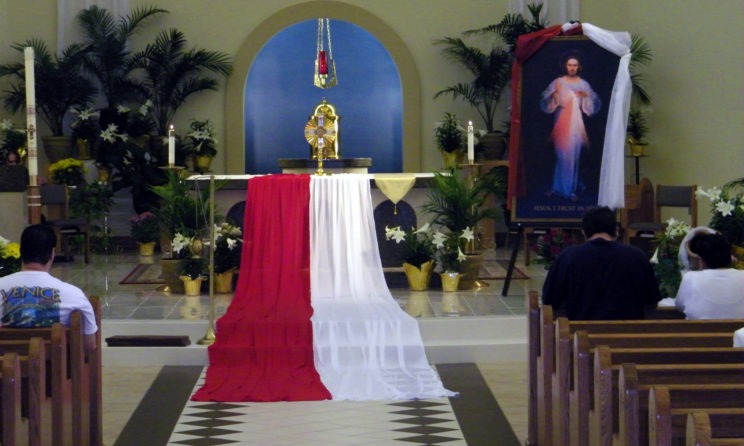
What Is Divine Mercy Sunday? Why Catholics Celebrate It: The Roman Catholic Church is going to celebrate the Divine Mercy Sunday which is also called the Octave of Easter (eight days after Easter) on 19th April 2020. The Orthodox call it Antipascha, as “Pascha” is their term for Easter and “anti-” in this case refers to “facing” an additional Sunday of Easter and the resurrection. Let’s find out more about the Holy day and why it is celebrated….
What is Divine Mercy Sunday?
Divine Mercy Sunday is celebrated every year on the Sunday after Easter, the Octave Day of Easter. The day is also known as the Feast of the Divine Mercy and it is basically a feast day which is observed by Roman Catholic and also some Anglicans.
The day at first was based on the Catholic devotion to the Divine Mercy that Saint Faustina Kowalska defined as part of her meeting with Jesus, and is related with special promises from Jesus and indulgences that is issued by the Church.
Why we celebrate Divine Mercy Sunday?
In the year 1931, the world was in the middle of the Great Depression and the recollections of World War I were still very much alive in the thoughts of Europeans when a Polish nun, Sr. Faustina Kowalska (at the present St. Faustina.) A devout nun, St. Faustina is said to have been personally visited by Jesus.
Jesus has shown himself to her, He then asked her to record His words. In a number of entries in her diary, Faustina recorded promises of Grace and Mercy related to the Feast of Divine Mercy on Mercy Sunday. Jesus Said:
“Ask of my faithful servant [a priest] that, on this day, he tell the whole world of My great mercy; that whoever approaches the Fountain of Life on this day will be granted complete forgiveness of sins and punishment. Mankind will not have peace until it turns with trust to My mercy.”
“I desire that the Feast of Mercy be a refuge and shelter for all souls, and especially for poor sinners. On that day, the very depths of My tender mercy are open. I pour out a whole ocean of graces upon those souls who approach the fount of My mercy. The soul that will go to Confession and receive Holy Communion shall obtain the complete forgiveness of sins and punishment. On that day all the divine floodgates through which grace flow are opened. Let no soul fear to draw near to Me, even though its sins be as scarlet. -Diary 699
As per to her diary, which was recorded on the Index of Forbidden Books for about more than 20 years, an image was discovered to her of the risen Lord, from whose heart stand out two rays, one is red which represents blood and the other “pale” which symbolize water, along with the words “Jesus, I trust in you” at the bottom. Faustina also wrote in her diary that Jesus told her, “I promise that the soul that will venerate this image will not perish.”
The feast of Divine Mercy is documented in the diary of Saint Faustina, gets from Jesus Himself the special promises of refinement associated with the Devotion of Divine Mercy. Specifically, Jesus said that an individual, who drives to sacramental as well as accepts the holy spiritual union on that day, will accomplish the total mercy and forgiveness of all their sins, as well as they, will be forgiven for their punishment. That means every single person would go directly after death to heaven deprived of suffering in purgatory (or hell). In addition, the Roman Catholic Church awards a plenary indulgence (observing the traditional rules) with the reading of a number of simple prayers.
The celebration of Divine Mercy Sunday is a great chance to reflect on the theme of how God’s kindness can overcome all the sins and, as the Congregation for Divine Worship and the Discipline of the Sacraments states, “a perennial invitation to the Christian world to face, with confidence in divine benevolence, the difficulties, and trials that mankind [sic] will experience in the years to come.”






